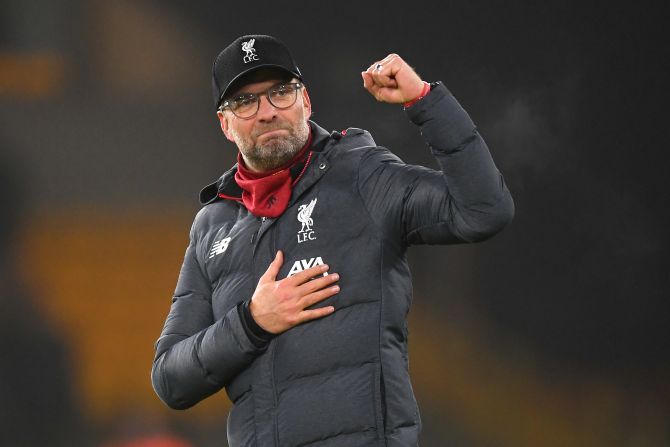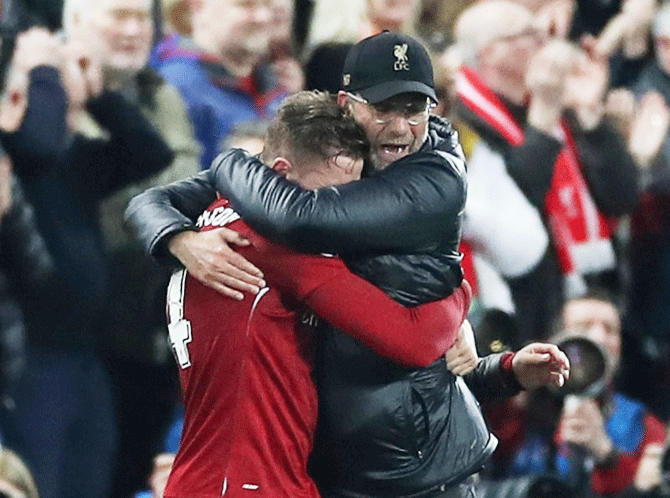It was a combination of a traditionally English focus on the manager as leader and frontman with German coaching's attention to detail and allied with a management style more akin to the ultra-specialised world of American football.

Liverpool's Premier League triumph will forever be associated with the charisma, drive and passion of their manager Juergen Klopp yet those individual qualities belie a style of management that shuns autocratic control.
Klopp took over a club without a league title since 1990 and still shaken by the way they allowed what would have been a maiden Premier League crown slip out of their hands under Brendan Rodgers in 2014.
The German's instant impact was to inject much-needed confidence, belief and enthusiasm into the club.
"Because it felt a little bit like a depression here, I think it made sense to be extremely lively," he said.
That was certainly evident from his early months in charge.
Yet while Klopp's back-slapping, laughter and positive thinking won over the fans, behind the scenes he was putting in place an approach that went way beyond soundbites about “heavy metal football”, a phrase he coined at previous club Borussia Dortmund.
It was a combination of a traditionally English focus on the manager as leader and frontman with German coaching's attention to detail and allied with a management style more akin to the ultra-specialised world of American football.
“Don't act like you know everything and be ready to admit that. It's not a real philosophy, it's just my way of life,” said Klopp in a recent club interview.
“Have strong people around you with better knowledge in different departments than yourself.”
This was exactly the approach Klopp took from the outset.
He made clear that he was not going to micro-manage every aspect of the club. When an official asked him what time he wanted the bus to leave with the team before a game, his response was: “Why are you asking me?”
Previous managers may have always decided such matters but Klopp was saying two things with that response: firstly, he had bigger things to worry about but, more importantly, other people better knew the answer to that question.

Premier League management has moved away from the old-school idea of the ‘boss’ who handled transfers and contracts, bus schedules, training routines, as well as tactics and selection.
Yet Klopp takes delegation more seriously than most.
It was an approach he used at Dortmund where he once explained why he did not, unlike some coaches, travel to scout.
“I’m not going to travel all over Germany and unearth gems... that’s nonsense. You really need to say to your scouts 'This is what we’re looking for, and if you find someone, call me'."
Liverpool, like all top clubs, have a recruitment department made up of specialists in talent-identification, using data as well as the eyes and ears of their staff.
When it comes to transfers, Klopp works closely with sporting director Michael Edwards, a partnership that has helped build key pieces in the title-winning side.
There has been a focused recruitment on expertise in the analysis and sports science departments too, where again, Klopp operates largely on a 'need-to-know' basis.
When Klopp gets key information, he is gifted in presenting it to the players in a concise and effective manner and frequently does it himself rather than leaving it to the men with the tablets.
"His knowledge of when to give information and when not to, of what to give and what not to, is just at a different level," said Liverpool analyst Mark Leyland.
The 52-year-old Klopp is quick to put his arm around a player and is hailed for listening as well as instructing but that relaxed or caring approach can mask his tougher side.
So is he a 'player's manager' or a demanding leader?
Klopp has no doubts: "It's both -- friend and drill sergeant."
It is a winning combination.












